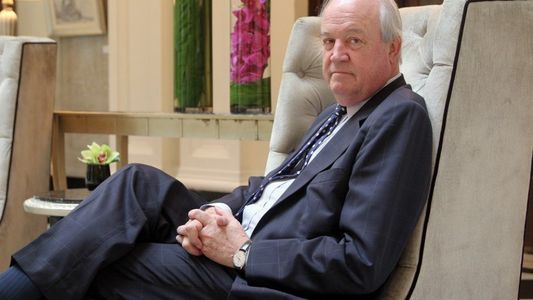Heine on Brazil’s Renewed Foreign Policy Under President Lula
Pardee Professor Jorge Heine examined Brazil’s pivotal position in the Global South and the implementation of active non-alignment (ANA) in its foreign policy in an article titled “Brazil, the BRICS and Active Non-Alignment,” published in CEBRI-Journal. With Trump’s reelection, Washington has radically changed its course, steering away from the principles of free trade, multilateralism, and liberal democracy. As this new era of international relations unfolds, Heine observed that Brazil is strategically expanding its clout by refusing to partake in the U.S-China power struggle, prioritizing its national interests, and hosting key diplomacy summits like BRICS, G20, and COP30.

“This [ANA] foreign policy doctrine holds that developing nations must put their national interest front and center, refusing to align themselves either with Washington or with Beijing. And if there is one country that has embraced that approach it is Brazil. Brazil is also especially well-placed to exercise a leadership role in it, because of its foreign policy trajectory within the Global South, its commitment to tackling global issues, and its pivotal position between North and South, East and West.” – Professor Jorge Heine
Even with domestic challenges on his hands, President Luiz Inácio Lula da Silva has proactively allocated equal importance to Brazilian foreign policy. For instance, Lula spearheaded a peace plan proposing to end the Russia-Ukraine war. Similarly, as the chair of the UN Security Council, Brazil assumed a bold stance on the ongoing conflict between Israel and Gaza by calling for a ceasefire.
“The degree to which Brazilian diplomacy is put to the test, as it hosts major summits and deploys such an ambitious global governance agenda while dealing with U.S.-China tensions, was also on full display at the G20 Summit in São Paulo in November 2024,” said Heine. “Although 22 Latin American countries have signed on to the Belt and Road Initiative (BRI), China’s major foreign policy project, Brazil is not one of them. … The truth is, Brazil-China relations (with a bilateral trade of US$ 181 billion in 2024) are on such solid footing that the signature of the BRI MOU, a largely symbolic gesture, does not make much of a difference to them.”
The emergence of the BRICS+ group, according to Heine, indicates the Global South’s rise. With the West in the throes, the BRICS cohort has found an opportunity to tackle critical issues related to health, trade and investment, climate change, artificial intelligence, and global security. And Brazil is in a favorable position because of its solid relationship with the United States and China alike. Instead of using BRICS for a confrontation, Heine remarked that Brazil should focus on securing a mutual understanding with the world leaders to resolve global issues.
To read Professor Heine’s complete analysis, click here.
Jorge Heine is a research professor at the Frederick S. Pardee School of Global Studies. A diplomat, international relations scholar, and lawyer, he served as an ambassador of Chile to China, India, and South Africa. At the moment, he is a non-resident senior research fellow at the Centre for China and Globalization (CCG) in Beijing and has has been a consultant to the United Nations, the Ford Foundation, the Canadian Ministry of Foreign Affairs, the Trinidad & Tobago Ministry of External Affairs, Oxford Analytica and Frost & Sullivan. Heine has written over fifteen books, including The Non-Aligned World: Striking Out in an Era of Great Power Competition (2025) that provides insights on how the Global South can navigate the changing diplomacy landscape amid the U.S.-China rivalry.